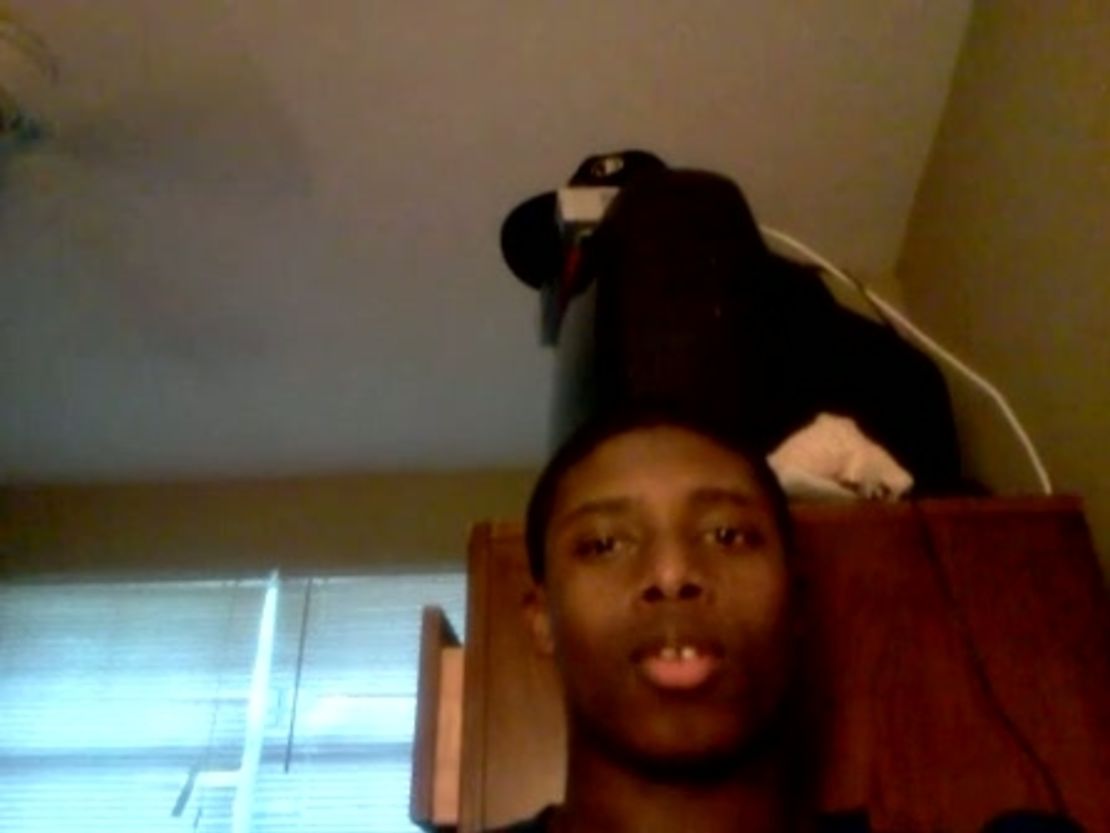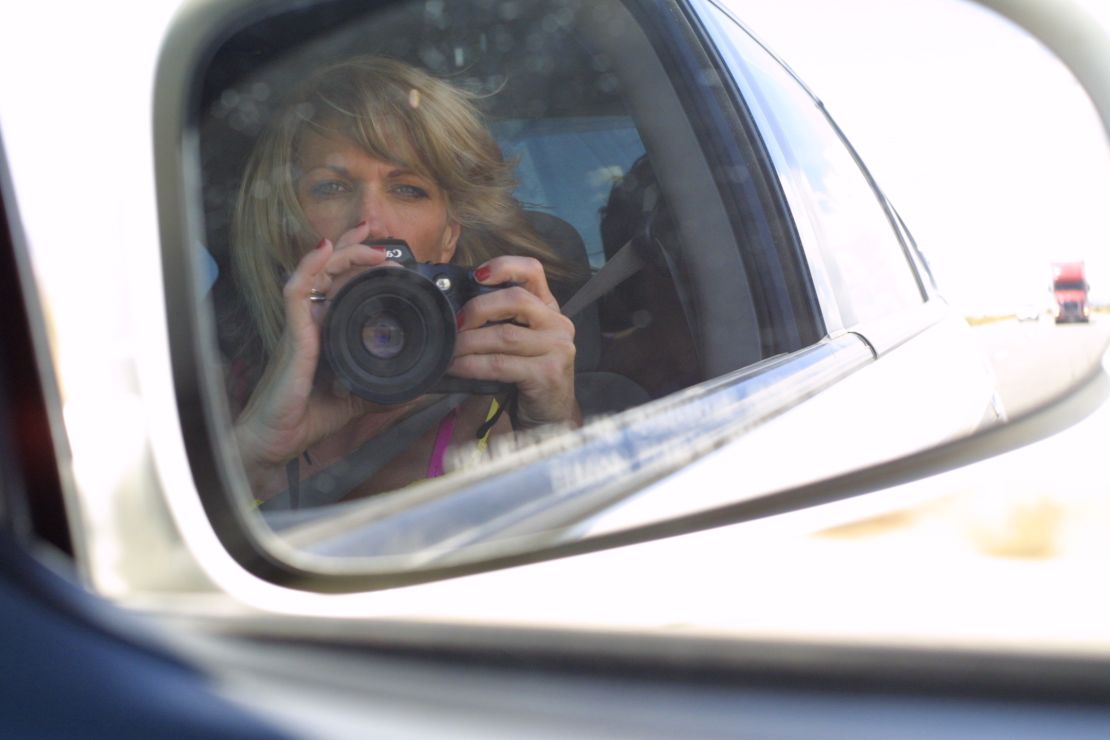Story highlights
It's the unlikeliest of tech trends: Deactivating from Facebook and social media sites
Some are leaving Facebook in favor of more "real" communication, free time
One study found that Facebook could make users more dissatisfied with their lives
Facebook defectors say they miss out on some events but are, overall, happier
A bad breakup: Nothing can be as emotionally tumultuous for a young heart.
Except maybe finding out via your Facebook newsfeed that your college ex is dating someone from your fraternity.
That was the defining moment that eventually led Brolin Walters, 24, to ultimately break up with something else: Facebook.
“I didn’t want to see what was going on with them,” said Walters. “So I deactivated my account.”
With a website that boasts 901 million active users and is launching an IPO on Friday, it seems unlikely that once you get on Facebook, you’d ever leave. But deactivating from the social networking site is not that unusual. Close to half of Americans think Facebook is a passing fad, according to the results of a new Associated Press-CNBC poll.
More and more people are stepping away from the technological realm and de-teching. There are even sites where they can pledge to delete their Facebook accounts. And tech writer Paul Miller from The Verge decided to leave the Internet for a year to reassess his relationship with it.
We asked whether any of you had left Facebook, and the responses urged in. From privacy issues to a need for more face time, the reasons for choosing to live without Facebook ran deep.
Maintaining a professional image
Although Walters, now a consultant, initially left Facebook for social reasons, he says he was also thinking about his career.

“You don’t want a future employer to find something that they would deem questionable,” he said.
Job prospects and personal privacy compelled high school student Alexander Clark, 18, to deactivate his Facebook account as well. Ever since he can remember, Clark has wanted to join the Air Force. Now, as he comes closer to making that dream a reality, he says he wants to maintain a professional image.
“There are things on Facebook that I don’t want my employer to see, and what I was told was ‘what’s on Facebook stays on Facebook.’ “
Despite leaving the site for privacy reasons, Clark considers Facebook to be a pioneering company.
“I would totally buy their IPOs if I had the money, but I’m just not [as] into Facebook as I used to be, and I think it is from the life decisions I have made,” he said.
Focusing on “real” communication
Putting in the effort to make a phone call: That’s what Shiela O’Dea does now after deleting her Facebook account.
O’Dea’s move off Facebook was gradual and started when she found the site went from being fun to being habitual. “I was literally on it all the time,” she said. “When I first logged off for good, I would think about getting back on. But the more I stayed away from it, the more I realized I didn’t need it.”

O’Dea says after deactivating from the site, she makes a greater effort to socially engage with others. “It’s funny, it’s called a social networking site, but we are sort of disconnecting,” she said. “It is mass communicating, but we are losing something – we are losing our interpersonal skills.”
Chris Andrus says he started feeling the content on Facebook became impersonal and irrelevant to his life. So he and his wife deactivated their accounts after five years on the site. He says their social lives improved after leaving Facebook because now they focus on more in-person connections.
“We feel like we have strengthened relationships with close friends and family that are truly important to us, and not concerned ourselves with the other hundreds of ‘friends’ that really aren’t important,” he said.
Shedding an emotional burden
A study from Utah Valley University says there is a direct correlation between the amount of time spent on Facebook and the way people perceive their lives. Users that spent more time on the site reportedly thought their Facebook friends had better lives than themselves.
That definitely rings a bell for Andrea F. (who didn’t want her last name used). She says Facebook made her perceive herself differently, and she felt pressured to be a certain way. The 28-year-old deleted her account 10 months ago when she realized how self-conscious Facebook made her feel. She started caring too much about what people she barely even knew thought about her profile and status updates, she explained.
“To make myself feel important, I made up exaggerated posts to garner attention from friends,” she remembers. “Does that make sense … no, but maybe I was not aware that I was unconsciously doing that until I got off [the site].”
Avoiding a time-waster
The average Facebook user spends more than six hours a week on the site. For some, that’s just too much time.
As a young mother, Evelyn Bateman, 30, said Facebook transformed into a time-waster for her.
“I would sit on the computer, logged onto Facebook, looking at photos of my high school friends’ baby pictures and I would think to myself, ‘Wow I haven’t talked to these people – there are people I haven’t spoken to in 10 years,” she said.
After deactivating her account, Bateman found time to sit down with classic novels and spend more them with her young children. “It is so easy to lose an hour of time on Facebook,” she said.
Bateman’s friends and even her husband are still on the site. After deactivating from Facebook, she now notices that people are not as engaged with their real lives because they are so entranced with their cyberlives.
“My husband would get these updates of his friends at a bar, and they would be updating their Facebook with photos and he said, ‘I wonder what it must be like to hang out with someone that is constantly updating,’ ” she said.
Maintaining personal privacy
Privacy was the biggest reason behind Tom Martin’s deactivation from Facebook in 2011. The 23-year-old says that although the site is free to use, people are paying a price by providing their personal information. He says Facebook is swiftly making profiles more public, and he does not want to compromise his privacy.
“I do not want to be a part of this apparent mission to alter the norms of society,” Martin said. “Facebook has frequently changed its privacy settings in the past and will do so again, always in favor of less privacy.”
Despite his adamant stance on maintaining his deactivation from Facebook, Martin admits to missing the occasional social outing or party by not being a member of the site.
“There is somewhat of a social price to be paid for rebelling against the trend,” he says, but he believes the people who really care about him will make the extra effort to stay in touch.

A downside to de-teching?
Although de-teching is emerging as a trend, some people noticed a negative stigma attached to not having a Facebook account.
O’Dea says people usually can’t believe it when she tells them she is not on the site. “They are shocked that I no longer communicate using Facebook, almost like there is something seriously wrong with me,” she said.
Martin highlights similar experiences when people discover he is not on the social networking site. “Once in a while a person will respond as if you’ve attacked their religion and indignantly start defending the site and trying to convince me how great it is and why I should use it,” he said.
Walters says he gets the “I can’t believe you’re not on Facebook” remark often. But he prefers face-to-face conversations much more than the digital, fleeting responses he would get via Facebook.
Even though he has noticed his social life change after Facebook, he says overall he is happy with his decision to deactivate.
“My network is smaller but stronger,” he says.
CNN’s Rachel Rodriguez contributed to this report.





